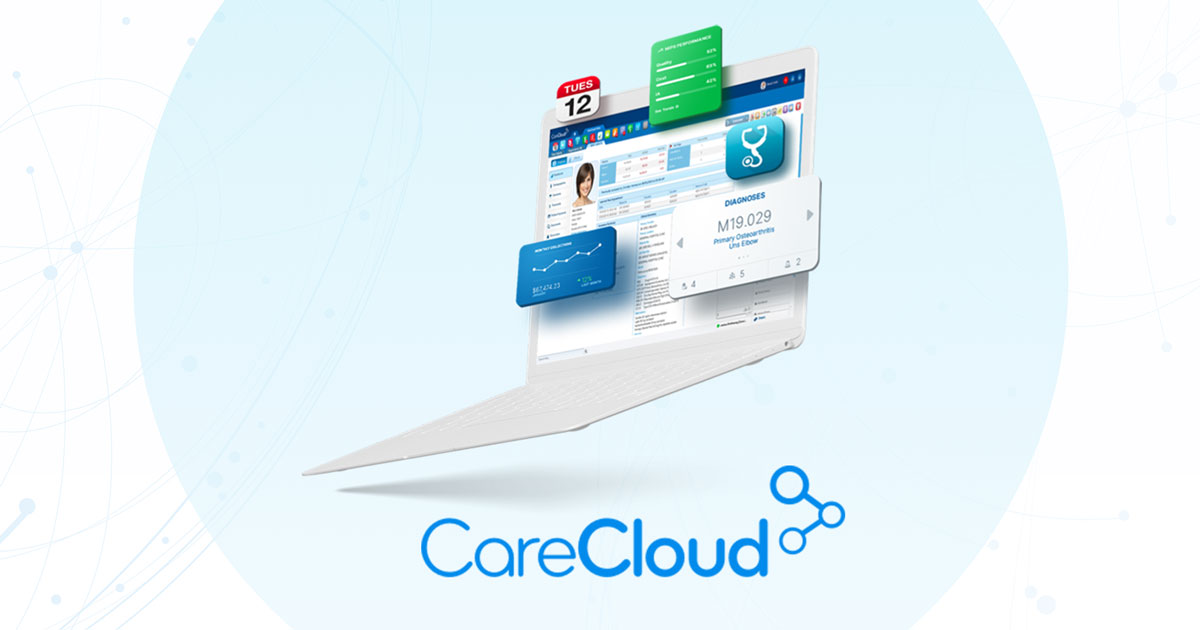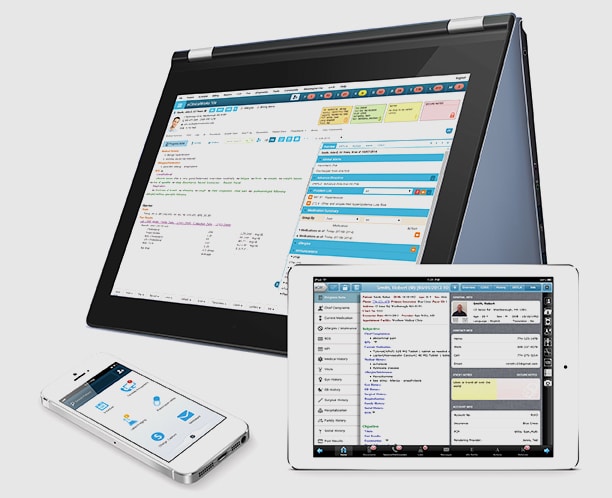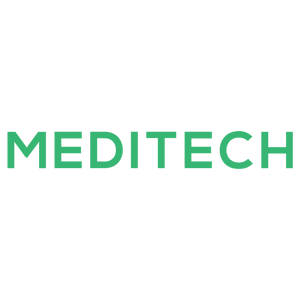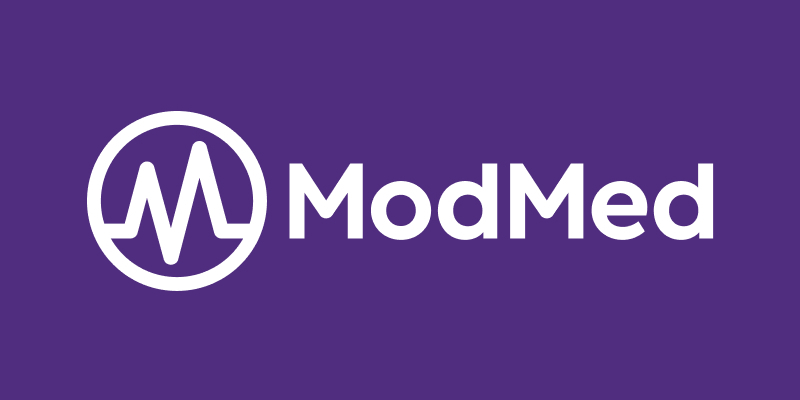Introduction
With the transition from paper to electronic health records well underway, healthcare organizations both large and small are looking for the right EHR system to manage their clinical and administrative workflows efficiently. While there are many great EHR vendors to choose from today, weighing factors like functionality, usability, affordability and customer satisfaction can be a daunting task. This comprehensive guide evaluates 15 of the leading EHR software providers based on core criteria to help you identify the best fit for your unique needs.
Methods of Evaluation
To evaluate and rank the top EHR software, we considered various factors like features and functionality, ease of use, support for quality reporting programs like MIPS, customer reviews and ratings, pricing structure and overall popularity. We also analyzed search volume data, keyword trends and number of backlinks to each vendor website to gauge market presence and demand. Higher rankings were given to vendors with robust yet intuitive functionalities, positive customer feedback, flexible pricing and strong brand awareness in the healthcare industry.
1. GE Healthcare Centricity
GE Healthcare Centricity is an electronic health record (EHR) software developed by GE Healthcare, one of the largest healthcare companies in the world. Centricity aims to streamline workflows, enhance patient care, and improve clinical and business outcomes for medical practices. With over 25 years of experience in healthcare IT, GE Healthcare offers a mature and reliable EHR system.
Pros: Some key advantages of GE Healthcare Centricity EHR include:
– Feature-rich ambulatory EHR from a respected and experienced vendor
– Strong integration capabilities with other GE Healthcare hospital systems like radiology PACS
– Robust support for quality reporting programs like MIPS including automated reporting
– Powerful analytics and business intelligence tools for population health management
Cons: One potential disadvantage is that as a larger EHR vendor, upgrades and enhancements may not be as fast compared to smaller independent vendors.
Pricing: Pricing for GE Healthcare Centricity varies based on practice size and needs. Generally it costs between $80-150 per clinician per month for the standard EHR system, implementation services, training and 24/7 support.
Some key stats about GE Healthcare Centricity EHR:
– Over 15,000 facilities currently use Centricity
– Supports over 150 specialties in ambulatory care
– Integrates with GE radiology systems used in over 5,000 hospitals
– 98% of eligible clinicians are successful in MIPS quality programs using Centricity
2. Epic
Epic is one of the largest and most widely used EHR software providers in the United States. Founded in 1979 in a basement in Madison, Wisconsin, Epic develops software to help healthcare organizations improve lives and health through innovation. They serve over 250 million patients and are used in over 25,000 healthcare organizations worldwide including prominent academic medical centers, pediatric facilities, community hospitals and integrated delivery networks.
Pros: Some key advantages of the Epic EHR system include:
– Feature-rich with advanced capabilities like population health management, analytics and revenue cycle management tools
– Highly customizable and configurable to meet the unique needs of different healthcare organizations
– Integrates well with other systems and devices through open application programming interfaces (APIs)
– Used by many large, sophisticated academic medical centers which indicates reliability and robust functionality
Cons: The main disadvantage of Epic is the high upfront and ongoing costs. Implementing and maintaining Epic requires a significant financial investment and long-term commitment from healthcare organizations due to the complexity and scale of the system.
Pricing: Pricing for Epic is not publicly disclosed and varies depending on the needs and size of each organization. However, industry experts estimate the initial implementation can range from $15-300 million or more. Ongoing annual software licensing and maintenance fees are typically in the millions as well given Epic’s sophisticated and comprehensive nature.
Some key stats about Epic include:
– Used by over 25,000 healthcare organizations worldwide
– Serves over 250 million patients globally
– Currently has over 40% of the EHR market share in the United States
– Integrated platform supports inpatient, outpatient, emergency department and homecare workflows
3. Cerner
Cerner is an industry-leading healthcare technology company based in North Kansas City, Missouri. Founded in 1979, Cerner’s electronic health record (EHR) software and services are used by facilities around the world to improve patient care. Their Millennium EHR platform powers many large hospitals and health systems in the United States.
Pros: Some of the main advantages of Cerner include:
– Leading vendor for large hospitals and health systems
– Excellent reputation for reliability and scalability
– Comprehensive solution with powerful reporting tools
Cons: One potential disadvantage is that Cerner is more costly than some other EHR options due to its scale and robust features targeting large organizations.
Pricing: Pricing for Cerner solutions varies depending on the size and needs of each client, but generally it is considered a premium-priced EHR. Implementation and annual maintenance costs can reach into the millions for large health systems.
Some key stats about Cerner include:
– Over 270,000 physicians use Cerner
– Cerner’s software is used in over 27 countries worldwide
– Their EHR systems support over 1 billion clinical encounters annually
4. HealthCatalyst
HealthCatalyst is a leading provider of data and analytics technology and services to healthcare organizations. Founded in 2010, HealthCatalyst offers an enterprise data management platform to measure and manage performance across entire healthcare systems. Their technology allows healthcare stakeholders like providers, payers, administrators and policymakers to optimize outcomes across the continuum of care.
Pros: Some key advantages of HealthCatalyst include: – Population health management and analytics platform allows organizations to gain insights across entire patient populations. – Integrates seamlessly with all major EHR systems to aggregate clinical, financial and operational data. – Advanced clinical, financial and operational analytics and modeling provide insights to optimize outcomes and lower costs.
Cons: A potential disadvantage is the upfront implementation costs. As an enterprise platform, implementing HealthCatalyst requires investment of both time and money to integrate the system, migrate data, and fully leverage the platform’s capabilities.
Pricing: Pricing for HealthCatalyst depends on the organization’s size, data volumes, and specific implementation requirements. Generally pricing is in the hundreds of thousands per year for typical sized healthcare systems. Implementation costs range from hundreds of thousands to over $1 million depending on the scope of the project.
Some key stats about HealthCatalyst include: – Over 100 million patient lives tracked on the platform – Work with over 50 health systems and over 500 other organizations – Integrate with all major EHR systems like Epic, Cerner, and Meditech – Analytic insights have helped clients generate over $600 million in measurable healthcare improvements
5. NextGen Healthcare
NextGen Healthcare is a leading provider of ambulatory-focused healthcare software and services. Their flagship product is the NextGen Enterprise EHR and Practice Management software, an integrated platform designed to support small to mid-sized medical and dental practices. With over 30 years in business, NextGen Healthcare currently serves over 60,000 providers globally.
Pros: Some key advantages of NextGen Healthcare include:
– Comprehensive EHR and practice management platform in one integrated system
– Intuitive and streamlined workflows popular among smaller practices
– Strong reporting capabilities to support MACRA quality reporting requirements
Cons: The main potential disadvantage is that as an all-in-one platform, it may not be as robust or customizable for some specialty practices or larger healthcare organizations compared to best-of-breed point solutions.
Pricing: NextGen Healthcare offers flexible pricing plans ranging from per provider per month to enterprise agreements. Pricing will depend on factors like the number of providers, users, specialty, modules included, and any additional services required. Typical starting pricing is around $150-250 per provider per month for a basic EHR and practice management package.
Some key stats about NextGen Healthcare include:
– Over 60,000 providers currently use NextGen solutions worldwide
– 30+ years in business providing healthcare IT solutions
– Integrated EHR, practice management, and workflow tools in a single platform
6. Allscripts
Allscripts is a leading healthcare IT solutions provider based in Chicago, Illinois. Founded in 1986, Allscripts offers a comprehensive electronic health record (EHR) system that can be used across different care settings like acute care hospitals, ambulatory clinics, and physician offices. Their EHR platform is designed to automate clinical documentation, orders, results, and other workflows to streamline care delivery processes.
Pros: Some key advantages of Allscripts include:
– Full-featured EHR tailored for different care settings like hospitals, ambulatory clinics and physician offices
– Good reputation for robust interoperability and connectivity with other providers and systems
– Comprehensive billing and revenue cycle management features help optimize reimbursements
Cons: One potential disadvantage is that the upfront costs and ongoing licensing fees of Allscripts can be higher compared to some other EHR vendors.
Pricing: Allscripts pricing varies depending on the specific product modules, number of providers and implementation support needed. Generally, customers can expect an initial set up fee starting at around $50,000 and annual licensing and support costs from $50-500 per provider per month.
Some key stats about Allscripts’ EHR platform include:
– Used by over 300,000 physicians globally
– Supports over 180 specialties
– Integrated with over 1000 health information exchanges
– Handles records for over 50 million patients
7. SimplePractice
SimplePractice is an all-in-one cloud-based EHR and practice management software designed specifically for mental health professionals. In business since 2003, SimplePractice has grown to serve over 185,000 health and wellness practitioners globally. Their HIPAA-compliant software platform offers therapy notes, billing, scheduling, client engagement tools, and telehealth functionality to help practitioners manage their private practice.
Pros: The main advantages of SimplePractice include:
– Being a complete all-in-one solution handling billing, notes, scheduling and more
– Customizable templates and workflows tailored for therapy and counseling needs
– Mobile accessibility through iOS and Android apps for easy access anywhere
– Built-in telehealth functionality for seamless virtual sessions
Cons: A potential disadvantage is that the pricing can be more expensive than some other EHR options. However, SimplePractice offers a complete polished solution rather than just individual features.
Pricing: SimplePractice offers monthly pricing plans starting at $79 per month for their Essentials plan which includes basic features. Their most popular plan is $149 per month for the Premium option which unlocks more customization and support. They also have an unlimited Corporate plan for larger practices priced separately.
Some key stats about SimplePractice include:
– Over 185,000 users worldwide
– Created specifically for mental health workflows
– 15+ years of experience developing EHR software
– Fully HIPAA compliant and secure cloud infrastructure
8. CareCloud
CareCloud is a leading cloud-based Electronic Health Records (EHR) software company that provides solutions for medical practices of all sizes. Founded in 2005 and headquartered in Florida, CareCloud serves over 40,000 healthcare providers. Their mission is to simplify healthcare for all through innovative technology and services.
Pros: Some key advantages of CareCloud include:
– Cloud-based EHR platform allows for easy remote access
– Affordable monthly subscription pricing with no long term contracts
– Wide range of features including e-prescribing, billing, and custom report building
– Fast implementation timeframes of just a few weeks for new practices
Cons: One potential disadvantage is that with CareCloud being cloud-based, a stable internet connection is required for consistent usability. This may be an issue for some rural practices with unreliable internet access.
Pricing: CareCloud offers affordable monthly subscription plans tailored to practices of different sizes. Plans start at around $99 per provider per month for their Essential package and scale up from there based on number of providers and desired features.
Some key stats about CareCloud include:
– More than 40,000 physicians currently use CareCloud
– Available in all 50 US states
– Integrates with over 175 medical billing services
– Implemented in practices ranging from solo providers to large multi-specialty groups
9. WebPT
WebPT is an all-in-one physical therapy software and EHR solution specifically designed for outpatient physical therapy clinics. Founded in 2001, WebPT is one of the leading PT practice management and EHR systems on the market with over 10,000 clinics currently using their software.
Pros: Some key advantages of WebPT include:
– Streamlined documentation workflows that allow clinics to stay compliant while improving productivity
– Integrated billing and scheduling that provides end-to-end management of the entire patient lifecycle
– Intuitive interface designed specifically for PT clinics to simplify common workflows
Cons: One potential disadvantage is that as a market leader, WebPT can be on the pricier side compared to some competitors. However, for many clinics the all-in-one nature and high ROI typically outweigh the higher upfront costs.
Pricing: WebPT offers various pricing tiers starting at $99/month for a single clinician. Larger clinics with 5+ clinicians can request a custom pricing quote. All plans include unlimited users, integrations, and support. Additional modules like billing and telehealth start at $50/month.
Some key stats about WebPT include:
– Used by over 10,000 PT clinics worldwide
– Processes over $5 billion in annual PT billing
– Integrated with over 50+ billing and accounting systems
10. eClinicalWorks
eClinicalWorks is one of the largest cloud-based EHR software providers in the U.S., serving over 150,000 clinical providers. Founded in 1999, eClinicalWorks provides physicians with an integrated, cloud-based electronic health records system along with practice management, medical billing, and revenue cycle management solutions. Their EHR platform aims to simplify day-to-day tasks for medical offices while ensuring compliance with regulatory requirements.
Pros: Some key advantages of eClinicalWorks include:
– Affordable pricing especially for small practices on tighter budgets
– Intuitive and streamlined interface optimized for physician workflows
– Strong support for meaningful use requirements and incentive programs
– Integrated platform handles EHR, billing, and collections in one system
Cons: A potential disadvantage is that some physicians report the software can feel a bit dated or “clunky” to use compared to newer competing platforms.
Pricing: eClinicalWorks offers flexible pricing plans tailored to practice size and needs starting at around $150/provider/month for their basic EHR package including practice management. Additional modules like telehealth, patient portal, and pharmacy management are priced separately.
Some key stats about eClinicalWorks include:
– Serves over 150,000 medical providers across 50 specialties
– Processes over 1 billion transactions annually
– Integrated solutions handle EHR, practice management, billing and collections
– Built-in tools to support Meaningful Use and other regulatory needs
11. DrChrono
DrChrono is a popular cloud-based EHR and medical practice management software. Founded in 2008, DrChrono has its headquarters in Santa Clara, California. Their electronic health record software is designed to be completely mobile and web-based, allowing physicians and staff to access patient records and manage the practice from any device with an internet connection.
Pros: Key advantages of DrChrono include:
– Mobile and cloud-based platform for anytime EHR access
– Intuitive interface and touchscreen capabilities
– Electronic signature and document management features
Cons: One potential disadvantage is that some physicians may prefer an on-premise EHR system rather than a cloud-based solution for privacy or control reasons.
Pricing: Pricing for DrChrono starts at $99 per physician per month for their basic plan. Additional modules and services are available for additional fees. They also offer a free 30-day trial to new customers.
Some key stats about DrChrono include:
– Used by over 85,000 physicians across 50 specialties
– Supports both solo and large medical groups
– Processed over 165 million billable services in 2021
12. Meditech
MEDITECH is an established provider of electronic health record (EHR) software. Founded in 1968, MEDITECH’s EHR software is used in over 2,300 facilities worldwide. With its headquarters in Westwood, Massachusetts, MEDITECH focuses on developing integrated healthcare IT solutions for community hospitals, critical access facilities, specialty hospitals, and large medical centers.
Pros: Some key advantages of MEDITECH EHR software include:
– Popular choice for community hospitals and critical access facilities due to its usability and focus on these markets
– Modular structure allows customers to deploy only the functionality they need
– Known for its usability and customer service reputation among existing users
Cons: One potential downside of MEDITECH EHR software is its higher costs of implementation and maintenance compared to some other EHR vendors.
Pricing: MEDITECH EHR software pricing varies based on the size and needs of each healthcare organization. Implementation costs can be substantial, ranging from hundreds of thousands to over $1 million depending on the modules deployed. Annual software maintenance fees are typically around 20% of the initial software licensing costs.
Some key stats about MEDITECH EHR software:
– Used in over 2,300 healthcare facilities globally
– Focused on the community hospital and critical access market
– Develops fully integrated, interoperable solutions
– Modular structure allows flexible deployment at different facility types
13. TigerConnect
TigerConnect is a leading healthcare communication and collaboration platform that enables secure messaging, video calls, task management and more for hospitals, medical groups and other healthcare organizations. Founded in 2011 and based in San Mateo, California, TigerConnect aims to improve coordination among care teams within and across organizations through its cloud-based platform.
Pros: Some key advantages of TigerConnect include:
– Communication and collaboration platform that brings together secure messaging, video conferencing and team collaboration tools.
– Improves coordination among care teams within and across organizations through better communication and information sharing.
– Advanced workflow tools that streamline operations by automating common clinical workflows like test results routing and tracking tasks.
Cons: One potential disadvantage is that the platform requires training and adoption by staff in order to realize its full benefits.
Pricing: TigerConnect pricing starts at $35 per clinician per month for standard licenses. Additional options like premium licenses, app integrations and custom configurations are also available for additional monthly fees.
Some key stats about TigerConnect include:
– Used by over 25,000 facilities worldwide
– Supports over 2 million care team members
– Processed over 1 billion messages in 2021
14. Modernizing Medicine
Modernizing Medicine offers cloud-based EHR and practice management software optimized for dermatology. Their flagship product is an electronic health record designed specifically for dermatology practices with tools and features to support the unique workflow and documentation needs of dermatologists. The EHR allows for digital charting, prescribing, scheduling and more through an intuitive interface.
Pros: Key advantages of Modernizing Medicine’s dermatology EHR include its leading integrated imaging capabilities optimized for capturing and annotating skin photos, conditions and lesions, as well as its focus on streamlining provider and patient experiences through the system.
Cons: A potential disadvantage is that as a specialty-focused EHR, it may not be as comprehensive or adaptable to other specialties compared to broader ambulatory EHRs on the market.
Pricing: Modernizing Medicine offers different pricing tiers based on practice size and needs starting at $99/provider/month for their basic Solo plan.
Some key stats about Modernizing Medicine include: used by over 3,000 dermatology practices, supports over 12,000 providers, handles over 50 million patient visits annually.
15. DrFirst
DrFirst is an industry-leading healthcare technology company that provides software and services for ambulatory care. Founded in 1993 and headquartered in Rockville, Maryland, DrFirst connects healthcare stakeholders across the continuum of care to deliver solutions that drive positive clinical and financial outcomes.
Pros: Some key advantages of DrFirst’s EHR software include:
– Solutions for ambulatory practices with customizable clinical workflows
– Comprehensive billing capabilities to streamline the revenue cycle process
– Integrated medications management functionality to improve patient safety
Cons: A potential disadvantage is that DrFirst may have a somewhat steeper learning curve for providers compared to some other EHR vendors due to its depth of features and customization options.
Pricing: DrFirst offers flexible pricing plans tailored for practices of various sizes and specialties. Basic per-provider pricing starts at approximately $150/month but can vary depending on the selected solutions and services. Additional fees may also apply for customized configuration, training, and ongoing support.
Some key statistics about DrFirst include:
– Over 200,000 providers using DrFirst solutions
– Integrated EHR platform used in over 1 million unique patient encounters per day
– Available in over 50 specialties and subspecialties
Conclusion
Selecting the right EHR system is crucial for delivering high quality and coordinated patient care while streamlining business operations. We hope this evaluation of the 15 top vendors based on proven criteria helps you narrow down choices suitable for your specific needs, priorities and budget. All the EHRs highlighted are highly capable with many similarities. But some may be better suited than others depending on factors like your specialty, practice size and reporting requirements. We recommend evaluating feature sets, requesting demos and reading reviews closely before making your decision.
















